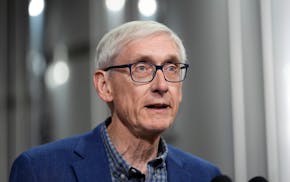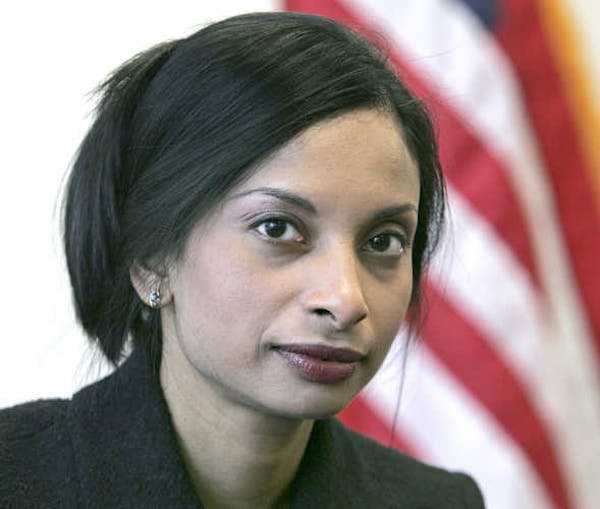An independent federal investigation has determined that former U.S. Attorney Rachel Paulose retaliated against the No. 2 person in her Minneapolis office after he filed a complaint that she had mishandled classified materials.
The announcement by the Office of Special Counsel in Washington on Wednesday appeared to be a full vindication of John Marti, the first assistant U.S. attorney, who resigned his management position in 2007, along with two other top lawyers in the Minneapolis office.
Marti, who continues to work as an assistant U.S. attorney, reached a financial settlement with the Justice Department. Any negative references will be removed from his personnel records. He had filed a complaint under the Whistleblowers Protection Act.
The finding, by acting Special Counsel William Reukauf, caps two years of near-constant turmoil in the local U.S. attorney's office over Paulose's policies and management style. The contention pitted many of the office's career attorneys and staff against Paulose, a political appointee of President Bush.
When the U.S. Senate approved her appointment in December 2006, Paulose, then 33, was the youngest U.S. attorney in the country and the first woman to hold the post in Minnesota. She resigned in November 2007 and was reassigned to a non-supervisory position in the Department of Legal Policy within the Justice Department in Washington, D.C.
Former U.S. Attorney Tom Heffelfinger said that complaints like Marti's are rare and that the very strong public statement from the special counsel was also unusual. "The press release is not good news for Rachel Paulose because it is very critical of her conduct as U.S. attorney," he said.
Classified materials
The special counsel found that Paulose routinely left classified reports on her desk or on an open bookshelf in her office. The materials detailed information about terrorist activities and possible terrorist targets in the United States.
In March 2007, a co-worker approached Marti with concerns about Paulose's handling of the material. Acting on advice from a department security manager, he reported it to appropriate department officials. The special counsel said regulations required that he report it. Marti also informed Paulose.
Immediately after he filed the report, Paulose initiated action to have him removed as her first assistant U.S. attorney, the special counsel said. "Confronted by Ms. Paulose's actions, Mr. Marti resigned his position and accepted a demotion," returning to an assistant U.S. attorney position.
"Based on considerable evidence of intent, animus and motive," the special counsel office concluded "that Ms. Paulose constructively demoted Mr. Marti."
Attorney General Michael Mukasey was informed of the finding in July and the Justice Department then reached an settlement with Marti, giving him back pay and an undisclosed lump sum payment "for any consequential damages."
"I am thankful for the professional independent investigation conducted by the investigators and attorneys of the Office of Special Counsel," Marti said Wednesday. Paulose did not return a phone call.
Left unsecured
William Michael, a former assistant U.S. attorney, praised Marti's integrity and said the handling of classified information "is a very big deal." Michael, former terrorism coordinator for the U.S. attorney's office in Minneapolis, said such information is labeled confidential, secret or top secret and how it's stored is dependent on its classification. "But leaving it unsecured in an office is not appropriate," he said.
Marti joined the Justice Department in Washington in 1997 and went to work in the fraud section of the criminal division of the Minneapolis U.S. attorney's office in 2000.
Hennepin District Judge Robert Small, a former first assistant U.S. attorney, said he and Todd Jones, then U.S. Attorney, were impressed with Marti. He came from New Ulm and they persuaded him to join the Minneapolis office. Small said he and Jones also recruited Paulose to become an assistant U.S. attorney.
"I wasn't there, but there was obviously a lot of stress in that office," Small said.
Staff researcher Roberta Hovde contributed to this report. Randy Furst • 612-673-7382

FAFSA completions in Minnesota drop amid flawed efforts to update form

Wisconsin Republicans ignore governor's call to spend $125M to combat 'forever chemicals'

Man killed in Minnetonka by law enforcement started gun battle with deputies, BCA says

